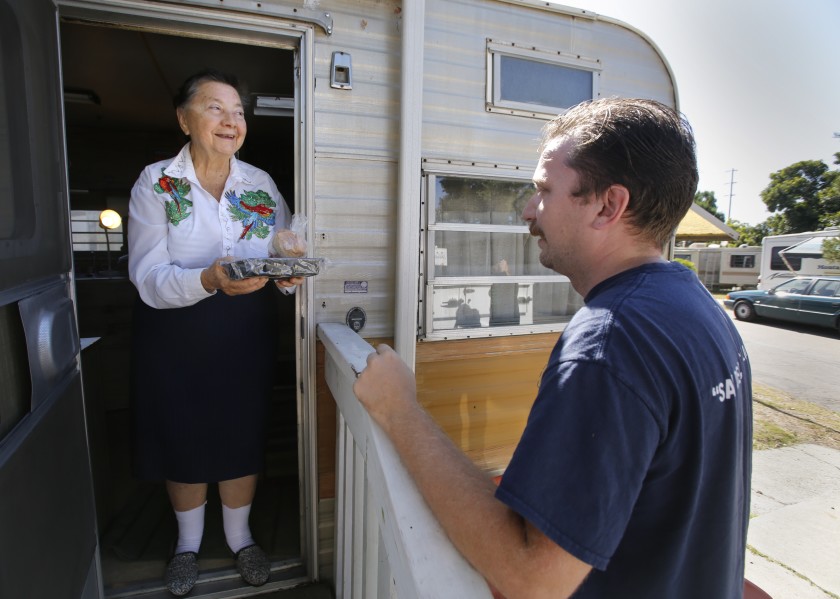

New program uses smartphones to report changes in status of Meals on Wheels clients
By PAUL SISSON
JUNE 5, 2019
An innovative program that leverages Meals on Wheels’ massive network of observant and tireless volunteers is getting a nationwide expansion after starting as a pilot program in San Diego County.
The national nonprofit that serves more than 900,000 free meals to needy seniors every day announced Wednesday that it is expanding a health and safety alert program co-developed by San Diego’s West Health Institute and Brown University that uses mobile technology to trigger rapid assistance for home-bound seniors when drivers detect signs of medical, social or environmental distress.
Meals on Wheels, based in Arlington, Va., will expand the program to 26 different communities spread across 16 states after starting in San Diego and making an initial expansion to Guernsey County, Ohio.
Carter Florence, senior director of strategy and impact for Meals on Wheels, said the results obtained in San Diego and Ohio during a one-year trial period were compelling enough to warrant further exploration on a much larger scale.
“Seeing the ability to resolve problems that may otherwise end up preventing clients from being able to continue living in their homes, that’s a big win in our book,” Florence said.
The pilot studied 20 different Meals on Wheels routes serving 850 clients for a one-year period that straddled 2017 and 2018. When one year was up, said Dr. Andrea Morris, the project’s principal investigator, drivers had sent in more than 425 different alerts regarding nearly 200 clients.
The most common reasons for alerts, Morris said, were physical and mental health issues followed by issues with self care, mobility and social engagement.
“Seniors who were facing issues around loneliness and social isolation, that came up quite a bit,” Morris said
In cases where these factors were observed, she added, the most common response was helping meal respondents schedule transportation to doctors appointments and senior centers though, in some cases, observations made during meal deliveries were forwarded to adult protective services if elder abuse was suspected.
The key to making the program work was modification of an existing mobile application that some Meals on Wheels programs use to track deliveries. A new version of the software asks drivers whether they have noticed any changes in a client’s condition after each delivery. When the answer to that first question is “yes,” the system automatically moves through a carefully-designed set of sub-questions designed to quickly determine what kind of changes have taken place. The information is sent immediately to a medical expert who can quickly reach out to other organizations able to offer a rapid solution.

